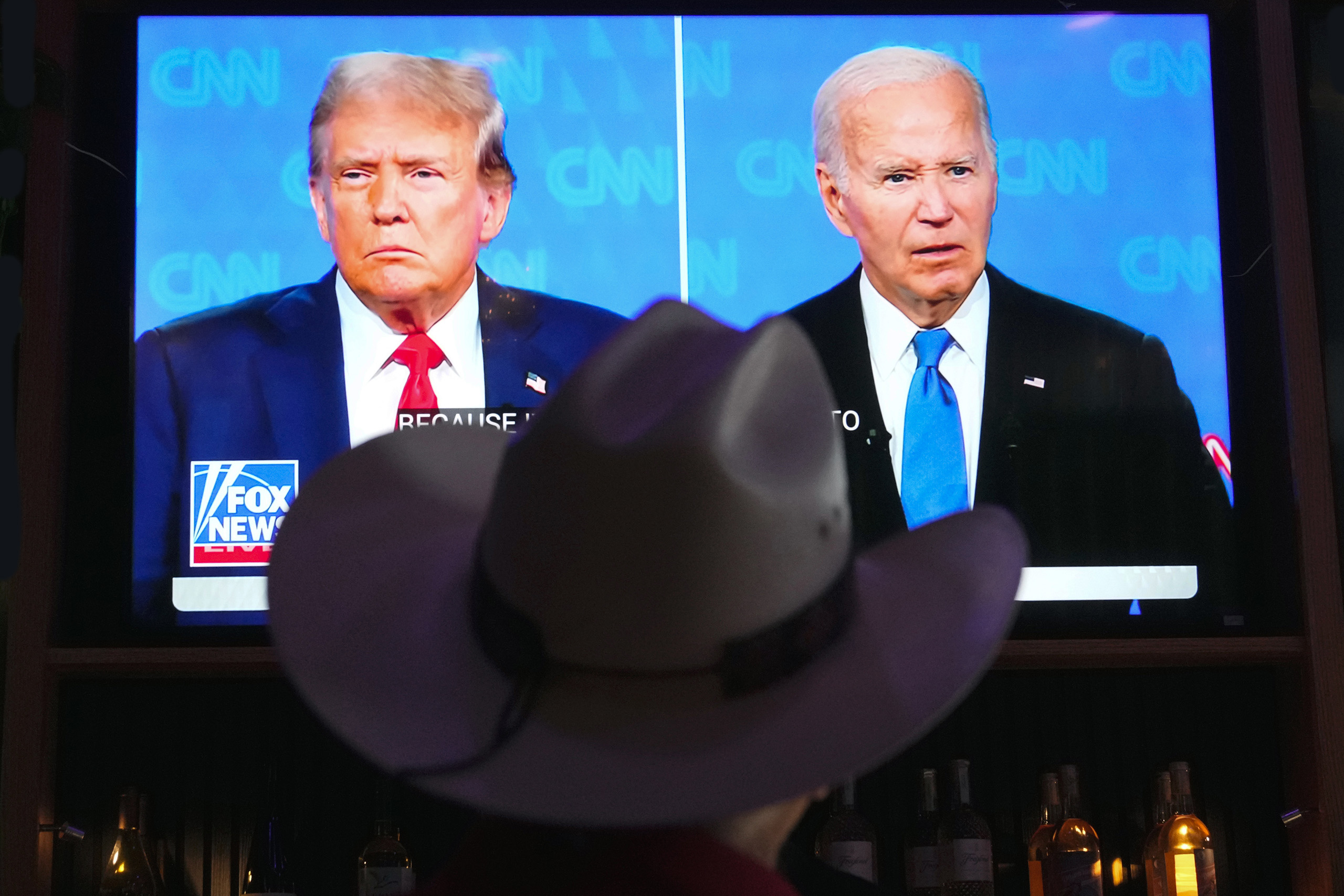Thursday’s Biden–Trump debate was always going to be unique. It was the first ever between a president and a former president, the first for more than fifty years without a live audience and, unusually, it took place ahead of the party conventions and pair’s official nominations as presidential candidates.
There was also much at stake. For the Democrats, Joe Biden needed to show he was up to the task of protecting the United States (and the world) from the feared consequences of a second Trump term. For the Republicans, Trump needed to be on-point and persuasive enough to convince voters he could be trusted again with the reins of power.
But the debate had barely begun before the pundits were highlighting Biden’s obvious failings and frailty, even as they called out Trump’s continual lies.
Previous debates have shown that perceptions of performance — ahead of policy discussions and factual presentations — crown the winner, though voters generally find the debates useful rather than determinative. With his age always a strike against him, Biden’s debate performance was humiliating for him, concerning for his staff and not at all reassuring potential voters. When the fact checking is over (too little, too late) Trump should also be humiliated, but the chances are that he and the MAGA Republicans will be more than happy with the night’s performance regardless.
What now for the Democrats? Since Biden first declared he would run again, there have been those, in the party and outside, who have talked about an alternative. Biden’s claim that he is the only candidate who can beat Trump rings increasingly hollow for many, and calls to replace him are now being openly voiced.
At least three significant steps are required for this to happen, all of which should preferably happen ahead of the Democratic Convention, which begins on 19 August.
First, Biden must be persuaded to step aside. Perhaps only his wife and family and the senior advisors he trusts can broach this sensitive topic. At this late stage, primaries have been held in all fifty states and a new candidate would have no delegates. But a transfer of the candidature would only happen if Biden was happy to urge his delegates to support the proposed candidate.
Secondly, the Democrats must unite behind the alternative candidate. Ideally the decision about who would run should not take place amid the chaos of the convention floor. Who could lead the party to such a consensus?
And finally, who would be the best candidate under these difficult conditions? Linked to that question is the issue of what to do about vice-president Kamala Harris.
Harris would be the de facto pick as a Biden replacement if not for her very weak polling numbers (her approval rating currently stands at 38 per cent, according to FiveThirtyEight). Aside from California governor Gavin Newsom, who has been seen as running a “shadow campaign” for the White House, any of a raft of Democratic state governors could potentially be in contention.
Those prospects include J.B. Pritzker (Illinois), Gretchen Whitmer (Michigan), Jared Polis (Colorado) and Josh Shapiro (Pennsylvania), all of whom have been preparing the ground for a run in 2028. Whitmer is in many ways the most interesting — she was described in the Atlantic as having a “foul-mouthed irreverence, goofy humour, and ability to pound beers and disarm adversaries” that might especially disconcert Trump — but each of them has done well in recent gubernatorial races.
No doubt more than one of them would be happy to have their arm twisted if Biden stepped aside. A potential driver could be the possibility that independent candidate Robert F. Kennedy Jr could siphon off disappointed Biden voters. Of the candidates listed above, Newsom and Whitmer (and of course Harris) have the best national name recognition.
The biggest hurdle any new Democratic presidential candidate would face is that political challenges (for that is how Biden stepping aside would be seen) are always tricky and would provide extra ammunition to Trump and more grist to the mill for Republicans. One lesson from the debate is that Trump will not hold his fire and is never afraid to bend or even disregard the facts.
Biden’s saving grace may be that (1) replacing him is a fraught task with a political cost and (2) it’s a long time from this debate until the election (indeed it’s a long time from this debate to the second, scheduled for September).
In that space Trump will be sentenced in New York on thirty-four felony counts relating to hush money paid to a porn star, the US Supreme Court will release its ruling on presidential immunity, and Trump must announce his vice-presidential pick.
Much else will distract people’s opinions and undermine their recall of a debate that Biden and the Democrats would like to forget. This is especially so if Biden can now cast this day aside and work to calm and reassure his nervous supporters and potential supporters. •




